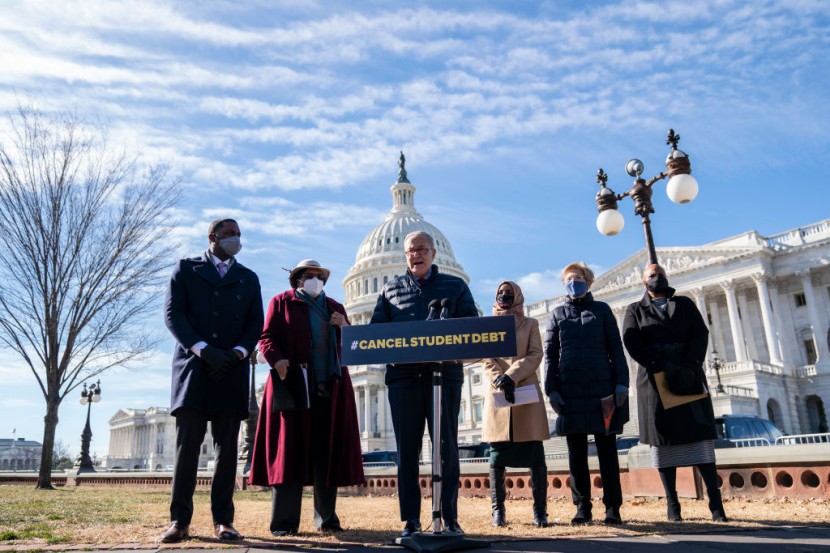
Despite calls from progressive Democrats for President Biden to sign an executive order wiping out millions in borrowers' debt, the administration has yet to make a statement on the student loan forgiveness program. The administration's recent steps toward this indicate that widespread cancellation of student loans could be likely in the future.
In a recent speech, Biden outlined plans to lower college costs, including offering two years of free community college to Americans and making college more accessible for low- and middle-income students. According to Mark Hamrick, senior economic analyst and Washington bureau chief for Bankrate, passing these large-scale reforms may be challenging because both sides are split on the issue. Though tuition-free community college was mentioned, there was no proposal to cancel unpaid student loan debt.
Biden's most recent remarks to Congress on Wednesday night featured plans to make college more affordable. But he didn't include student loans. Here's what you need to do about student loan debt forgiveness and why it could affect you, as per Bankrate:
Student loan forgiveness program update
In early April, Biden recommended that US Secretary of Education Miguel Cardona lead a judicial study of whether canceling student loan debt without congressional approval is lawful. The findings of this investigation will aid the Biden administration in determining if forgiving is a choice, when it might occur, and how much they will forgive.
Although the legal review is likely to take a few weeks, there is already pressure on Biden to move quickly, especially from Democrats such as Senator Elizabeth Warren. In 2020, Biden recommended forgiving $10,000 per borrower in federal student loan debt.
Warren and other Democrats have been pressuring Biden to forgive $50,000 per borrower since then. Though Biden has spoken against dismissing $50,000, he hasn't ruled out forgiving a larger sum.
According to the Department of Education, Biden's $10,000 cancellation plan would wipe out about 15 million borrowers' federal student loan debt. And Warren's $50,000 proposal would wipe out about 36 million borrowers' debt.
Read Also: Will Joe Biden Cancel Student Loan Debt as Progressives Call on to Do So
2 Senators launch bipartisan effort to ease student loan forgiveness
Currently, service members qualify for the Public Service Loan Forgiveness program, which allows them to participate in income-based repayment programs with the possibility of loan forgiveness after ten years. However, if a military member is mobilized and places their balances on hold, the time does not count against debt repayment, extending the time they must pay, Business Insider reported.
Senators Marco Rubio of Florida and Maggie Hassan of New Hampshire are working to change it. On Friday, Rubio and Hassan launched the Recognizing Military Service in Public Service Loan Forgiveness (PSLF) Act, which requires service members who postponed their student loan payments when deployed to apply for PSLF. Currently, deferring or forbearing student loans when on active duty does not count as qualified contributions, and this proposed law will streamline the procedures for service members to receive accrued student loan forgiveness.
Will a student loan forgiveness program ever happen?
Borrowers might have their balances lowered or eliminated very easily if Biden chose to void the loan by executive action. However, such a move could be faced with legal challenges, causing delays. A better vision could appear soon.
If the White House decides to defer student loan forgiveness to Congress, Democrats will almost certainly use the budget reconciliation process to do that. Because of this, they will pass laws with only a single majority, which is what they have.
According to Senate procedure rules, other bills usually require 60 votes to pass. Republicans vehemently oppose the notion of a student loan jubilee. The next round of budget reconciliation will most likely take place in the fall, as per CNBC.
Read Article: $50k Student Loan Forgiveness Would Free 36 Million Student Borrowers From Debt
© 2025 HNGN, All rights reserved. Do not reproduce without permission.








